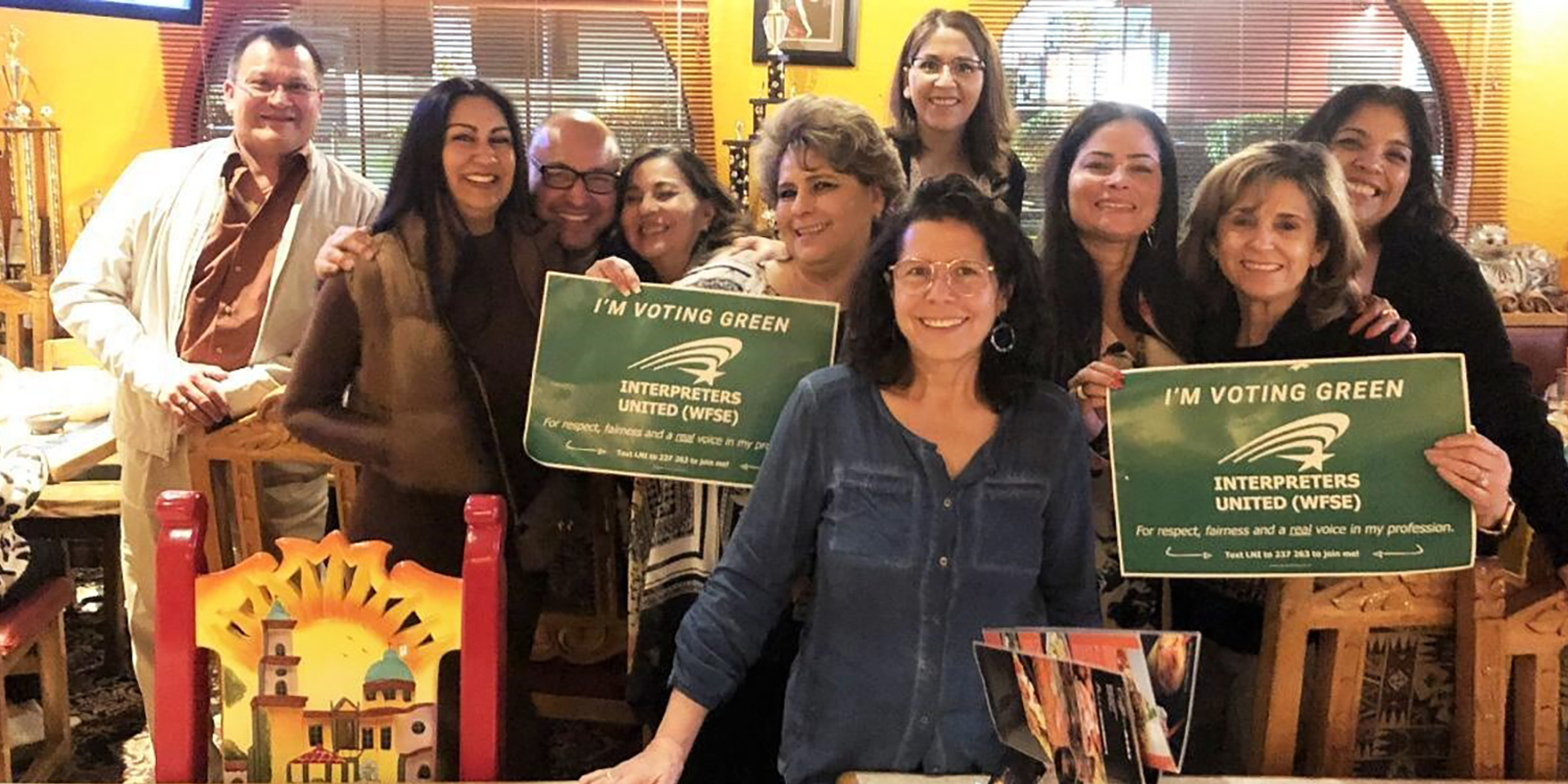Interpreters for Washington state’s Department of Labor & Industries (L&I) have overwhelmingly chosen to form a union through AFSCME to improve their profession and working conditions so they could better serve their clients.
AFSCME Interpreters United (WFSE/Council 28) won the representation election in late August for L&I spoken language interpreters with 81.5% of valid ballots cast.
These interpreters now have a collective voice that will be heard in the legislature, at the bargaining table, and in the clinics. They are part of WFSE (the Washington Federation of State Employees), which represents more than 46,000 public service workers throughout the state, and AFSCME, a national union with 1.4 million members.
The billionaire-backed Freedom Foundation – an anti-worker group – set up a rival “union” to run in the representation elections, but Interpreters United notched a convincing victory.
Interpreters United won the initial election for the L&I interpreters in July, easily besting the Freedom Foundation-backed group. But a runoff election was necessary to secure the support of an outright majority of the bargaining unit, according to AFSCME’s Department of Organizing and Field Services. In last month’s runoff, Interpreters United won with a commanding lead despite the discord and division sown by the Freedom Foundation.
“We owe it to L&I patients and our interpreter community to unite under a real union,” said L&I interpreter Juanito Salido.
Fellow interpreter Zewdu Mekonnen said he voted for Interpreters United because he believes in bedrock values such as fairness and equity.
“Interpreters United (WFSE) has demonstrated time and again that it stands for those values I dearly hold,” he said.
Another interpreter, Norma Rios, said: “With a democratic union, we can build a culture of solidarity for interpreters where we are not competing with each other over appointments.”
The keys to victory were rank-and-file activism and worker solidarity. L&I interpreters chose to work together for the good of their profession and for the injured workers who need competent interpreters to access workers’ comp and other services provided by L&I.
“We provide a vital service for the health care system in Washington state,” said interpreter Saul Aguilar Cruz. “Having a voice that will be heard will ensure we are respected as professionals.”
